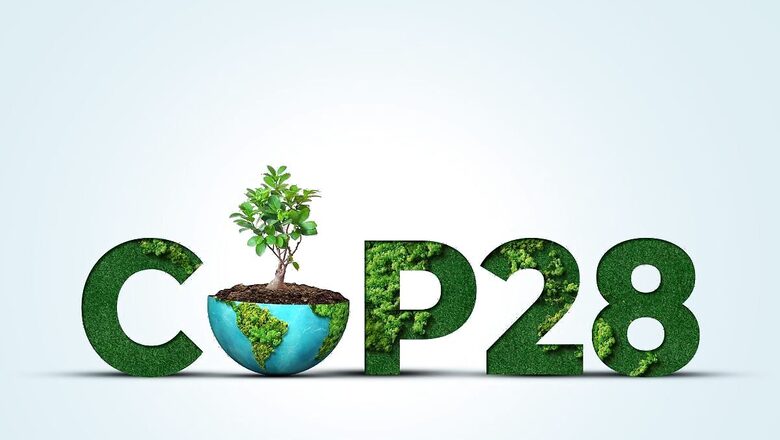
views
So, when representatives from nearly 200 countries gather in the UAE this December, they will have the responsibility to take stock of what governments are doing to prevent the climate crisis from intensifying further. The annual United Nations Climate Change Conference — COP28 — will be held this year from November 30 to December 12 in the UAE.
FIRST-EVER GLOBAL STOCKTAKE
COP28 will conclude the first-ever Global Stocktake (GST) and present the first report card of global climate action at the end of the two-week conference. In 2015 in Paris, all the countries, including India, had agreed to limit the rise in global temperature this century to 2℃, while making efforts to limit it to 1.5℃.
Despite the commitment, the world has already warmed by 1.1℃, and is dangerously close to breaching the threshold. In fact, a new report from the UN finds national climate action plans remain insufficient to meet the 1.5 degrees goal of the Paris Agreement.
At COP28, the countries will assess the overall progress that nations have made to prevent the temperatures from rising further. This is called a Global Stocktake, which will happen every five years to make governments accountable for their actions. Once the GST is complete, countries will have two years to update their climate targets – Nationally Determined Contributions (NDCs) — on how they plan to take stronger action. The GST will focus on Mitigation, Adaptation and Finance.
OPERATIONALISING LOSS AND DAMAGE FUND
If there is one key outcome that Global South is keenly looking forward to at COP28, it is the operationalising of the Loss and Damage Fund. It is a new fund that was created to compensate vulnerable countries and help them mitigate the impacts of climate change made worse by emissions caused by rich nations.
While all countries had agreed to set up the fund at COP27 last year, the upcoming Summit is expected to get it running. The fifth meeting of the UNFCCC Transitional Committee that concluded in Abu Dhabi recently has passed a list of recommendations for implementing the crucial fund, which will be taken forward at COP28. But several modalities still need to be chalked out.
Countries continue to spar over who should contribute most to this fund, and who all will get access to it. With its extreme vulnerability to disasters, India has also pushed for access to the fund alongwith other developing countries.
TRIPLING RENEWABLE ENERGY CAPACITY BY 2030
The G20 New Delhi Declaration successfully managed to bring 20 of the world’s powerful economies, including the US, China and the UK, onboard to work towards tripling RE capacity by 2030. But the efforts are subject to the national circumstances of each country. This ambitious clean energy push is expected to take centre stage at the COP28 where the 197 countries would be urged to commit to the target. As part of its NDCs, India has committed to achieve 50 per cent of its cumulative electric power installed capacity from non-fossil fuel-based energy resources by 2030.
DEAL ON PHASING OUT UNABATED FOSSIL FUELS
In COP27 last year, India – which depends on coal to meet 55 per cent of its energy needs — had proposed to expand the phase down of coal to include oil and gas. But it failed to make it to the final agreement. With global emissions at an all-time high, there is a renewed push for countries to commit to phasing out all fossil fuels, and therefore, the language around use of fossil fuels in the negotiated text would be significant.
UNMET PROMISES, PUSH FOR CLIMATE FINANCE
Developed countries have failed to deliver the $100 billion pledge they undertook in 2009 to support climate change mitigation and adaptation in poorer nations, which has now become a teething issue in all climate negotiations.
India under its G20 presidency managed to change the language around climate finance from billions to trillions dollars for people living in the Global South. The New Delhi declaration also noted the need of around $5.8 trillion by 2030 for developing countries to achieve their NDCs. It remains to be seen what outcome these rocky negotiations will yield at COP28, but it is certain that the world needs to step up fast to prevent the most vulnerable people from paying the price of climate change.




















Comments
0 comment